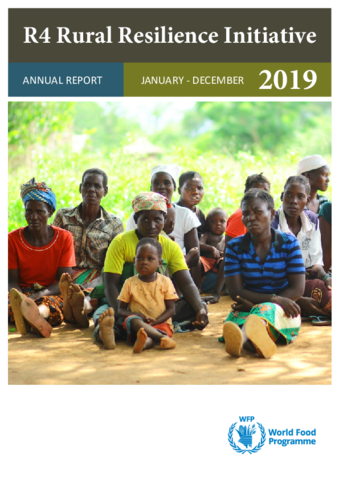
R4 saw a one percent growth in the number of farmers insured in 2019, with this year’s focus being on consolidating the gains achieved so far in existing countries and preparing for next year’s geographical expansion. In Ethiopia, the initiative reached over 28,000 farmers (42 percent women) with microinsurance. This year, activities focused on building the index design capacity of local stakeholders in the country and defining the steps for handing over design and distribution of microinsurance products to the local insurance companies from 2020 onwards. Under the Satellite Index Insurance for Pastoralist in Ethiopia (SIIPE), 7,816 pastoralists accessed index-based livestock insurance in the Somali region of Ethiopia. In Senegal, a total of 8,206 farmers (52 percent women) were insured this season. In Malawi, R4 insured 37,891 farmers (71 percent women) for the 2019/20 season and is piloting a hybrid index insurance product in three districts, that brings together Weather Index Insurance (WII) with Area Yield Index Insurance (AYII), providing farmers with a more comprehensive insurance coverage. In Zambia, no new insurance enrolments were undertaken, following recommendations made by the Mid-Term Review (MTR) of the R4 Programme in Southern Africa commissioned by the Swiss Agency for Development and Cooperation (SDC), with WFP Zambia now focusing on consolidating the gains obtained so far and supporting sustainability plans. In Kenya, a total of 8,862 farmers (85 percent women) were insured for the 2019 Short Rains season. In Zimbabwe, R4 insured 1,651 farmers (66 percent women) and expanded to three additional wards. In addition to microinsurance, Zimbabwe became the first-ever country in Southern Africa to test the ARC Replica instrument in collaboration with the Government of Zimbabwe and the African Risk Capacity (ARC) Ltd.
